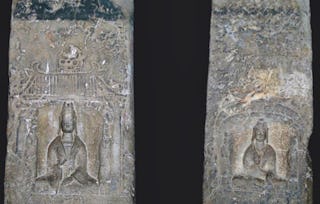Yunnan, abbreviated as Yun and called Dian for short, is a multi-ethnic province which has historically been situated in the southwest frontier of China. Over time, the ethnic minorities evolved into splendid cultures, each with their own unique social life, religious beliefs and customs. The course is taught in English and provides an introduction to 25 ethnic minorities in Yunnan Province, namely the Yi, Bai, Hani, Dai, Zhuang, Miao, Hui, Lisu, Lahu, Wa, Naxi, Yao, Jingpo, Tibetan, Bulang, Buyi, Achang, Pumi, Mongolian, Nu, Jinuo, De'ang, Shui, Man and Dulong nationalities. By participating in this course, you will gain fascinating insights into the culture of each ethnic group as we look in turn together at their geographical location, population distribution, language, costumes and diet, festivals and holidays, religious beliefs, literature and art, etc. This course aims to improve your English and bring these amazing people groups in Yunnan Province to life. we are sure you will thoroughly enjoy this course.

The amazing world of the ethnic groups of Yunnan Province
3 days left! Gain next-level skills with Coursera Plus for $199 (regularly $399). Save now.

(10 reviews)
Recommended experience
Skills you'll gain
Details to know

Add to your LinkedIn profile
8 assignments
See how employees at top companies are mastering in-demand skills

There are 8 modules in this course
In Unit One, you are going to learn the cultural aspects such as the geographical location, population distribution, language, costumes and diet, festivals and holidays, religious beliefs, literature and art of three ethnic groups in the upper reaches of Nujiang River: Nu Nationality, Dulong Nationality and Lisu Nationality. At the end of the unit, there will be a test and two questions for discussion.
What's included
8 videos1 assignment1 discussion prompt
In Unit Two, you are going to learn the cultural aspects such as the geographical location, population distribution, language, costumes and diet, festivals and holidays, religious beliefs, literature and art of three ethnic groups in the lower reaches of Nujiang River: Deang Nationality, Jingpo Nationality and Achang Nationality. At the end of the unit, there will be a test and two questions for discussion.
What's included
3 videos1 assignment2 discussion prompts
In Unit Three, you are going to learn the cultural aspects such as the geographical location, population distribution, language, costumes and diet, festivals and holidays, religious beliefs, literature and art of three ethnic groups in the region of Three Parallel Rivers: Tibetan Nationality, Naxi Nationality and Pumi Nationality. At the end of the unit, there will be a test and two questions for discussion.
What's included
6 videos1 reading1 assignment2 discussion prompts
In Unit Four, you are going to learn the cultural aspects such as the geographical location, population distribution, language, costumes and diet, festivals and holidays, religious beliefs, literature and art of three ethnic groups in Lancang River Basin: Dai Nationality, Hani Nationality and Lahu Nationality. At the end of the unit, there will be a test and two questions for discussion.
What's included
6 videos1 assignment
In Unit Five, you are going to learn the cultural aspects such as the geographical location, population distribution, language, costumes and diet, festivals and holidays, religious beliefs, literature and art of another three ethnic groups in Lancang River Basin: Bulang Nationality, Jinuo Nationality and Wa Nationality. At the end of the unit, there will be a test and two questions for discussion.
What's included
6 videos1 assignment2 discussion prompts
In Unit Six, you are going to learn the cultural aspects such as the geographical location, population distribution, language, costumes and diet, festivals and holidays, religious beliefs, literature and art of three ethnic groups in central and eastern Yunnan Province: Bai Nationality, Yi Nationality and Mongol Nationality. At the end of the unit, there will be a test and two questions for discussion.
What's included
6 videos1 assignment2 discussion prompts
In Unit Seven, you are going to learn the cultural aspects such as the geographical location, population distribution, language, costumes and diet, festivals and holidays, religious beliefs, literature and art of another three ethnic groups in central and eastern Yunnan Province: Man Nationality, Hui Nationality and Zhuang Nationality. At the end of the unit, there will be a test and two questions for discussion.
What's included
4 videos1 assignment2 discussion prompts
In Unit Eight, you are going to learn the cultural aspects such as the geographical location, population distribution, language, costumes and diet, festivals and holidays, religious beliefs, literature and art of the last four ethnic groups in central and eastern Yunnan Province: Miao Nationality, Yao Nationality, Buyi Nationality and Shui Nationality. At the end of the unit, there will be a test and two questions for discussion
What's included
9 videos1 assignment2 discussion prompts
Instructor

Offered by
Explore more from Learning English
 Status: Preview
Status: PreviewNanjing University
 Status: Preview
Status: PreviewNanjing University
 Status: Preview
Status: PreviewThe Chinese University of Hong Kong
 Status: Preview
Status: PreviewThe Chinese University of Hong Kong
Why people choose Coursera for their career

Felipe M.

Jennifer J.

Larry W.

Chaitanya A.

Open new doors with Coursera Plus
Unlimited access to 10,000+ world-class courses, hands-on projects, and job-ready certificate programs - all included in your subscription
Advance your career with an online degree
Earn a degree from world-class universities - 100% online
Join over 3,400 global companies that choose Coursera for Business
Upskill your employees to excel in the digital economy
Frequently asked questions
To access the course materials, assignments and to earn a Certificate, you will need to purchase the Certificate experience when you enroll in a course. You can try a Free Trial instead, or apply for Financial Aid. The course may offer 'Full Course, No Certificate' instead. This option lets you see all course materials, submit required assessments, and get a final grade. This also means that you will not be able to purchase a Certificate experience.
When you purchase a Certificate you get access to all course materials, including graded assignments. Upon completing the course, your electronic Certificate will be added to your Accomplishments page - from there, you can print your Certificate or add it to your LinkedIn profile.
Yes. In select learning programs, you can apply for financial aid or a scholarship if you can’t afford the enrollment fee. If fin aid or scholarship is available for your learning program selection, you’ll find a link to apply on the description page.
More questions
Financial aid available,

